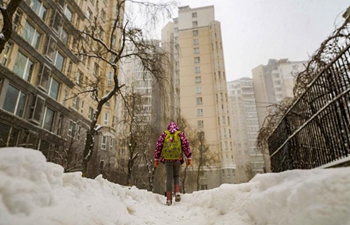OTTAWA, Dec. 2 (Xinhua) -- Canadian cities have not prepared well against the threat posed by climate change, according to a study newly published in the journal Climatic Change.
The study is based on a survey of 63 Canadian municipalities of all sizes against 46 indicators that include baseline information, goals, implementation, evaluation and public participation, showing major gaps in how most cities are preparing for coming conditions and in how they are reducing their contribution to the problem.
Most Canadians and property are in cities, which not only are strapped for cash to fill potholes and run buses, but their main source of income can conflict with the need to plan for climate change.
"Almost all plans failed to include an assessment of the municipality's vulnerability to specific climate change impacts," the paper says. Many cities hadn't done enough research to be able to write a comprehensive plan.
Only seven communities had identified specific neighbourhoods that might be vulnerable. A dozen identified specific local industries at risk.
Climate scientists are increasingly able to attribute extreme weather events to the influence of climate change. And when floods or wildfires destroy lives and property, it's usually in a city.
Cities are the most vulnerable to climate change in Canada but have the least resources to manage the problem, so it's imperative that they have some strategy or plan, the paper adds.
The paper is the result of more than a year's effort and included computer modelling of what the local climate might look like in 2050. That study concluded that the number of extreme heat days is likely to increase to 30 from four and the number of extreme precipitation events to double to nine.













